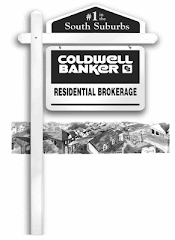NAR 2008 Survey Highlights:
41% of recent home buyers were 1st time buyers
1/3 of home buyers 1st step was to look online for properties
87% of all home buyers used the Internet to search for homes
94% of buyers aged 25 to 44 used the Internet to search for homes
Real estate agents were viewed as a very useful information source by 81% of buyers who used an agent while searching for a home
The typical home buyer searched for 10 weeks and viewed 10 homes
81% of buyers purchased their home through a real estate agent or broker
¼ of 1st time buyers reported that the mortgage process was somewhat more difficult than expected
67% of homebuyers in the Midwest were under 45 years old
The 3 overall factors that most influenced a neighborhood choice were quality of the neighborhood, convenience to job and affordability of homes
The median price paid by recent purchasers in the Midwest was $174,500
81% of buyers found the Internet and agents very useful information source
3% found the house they purchased through the newspapers, 1% through homes magazines
86% of buyers ranked multiple photos as very useful on websites
84% of buyers ranked detailed information as very useful on websites
68% of buyers ranked Virtual Tours as very useful on websites
Friday, August 28, 2009
Tuesday, August 11, 2009
How Foreclosure Affects Your Credit Score and Your Life
Former clients of Joan Camerlengo, a Staten Island, N.Y.-based real estate broker, succumbed to foreclosure after a major institutional lender handed them a mortgage they couldn't afford. The mortgage involved 100 percent financing through a fixed-rate first mortgage, as well as a monthly adjustable second mortgage. "Within two months of purchasing their new home, it became unaffordable." Camerlengo explains. That's because the interest rate on the second mortgage adjusted to a level they could not afford.
As they struggled to pay their mortgage, other bills went by the wayside, including their cell phone and credit card bills. The lender refused to adjust the terms of the second mortgage, so they were forced to file bankruptcy, which, in turn, will affect their credit for the next seven years. "They lost their home and the situation put a great deal of stress on their marriage."
For millions across the nation, the possibility of foreclosure has become a harsh reality, and many are dealing with the affects foreclosure has on their credit record.
"Lower credit scores can result in being denied credit, such as credit cards and car loans, and facing much higher rates for loans and even other items, such as insurance, that rely on credit scores," explains Andrew Housser, co-CEO of Bills.com, a free consumer personal finance resource, Applying for a new job? Your potential employer may refer to your credit score to determine your trustworthiness and whether or not you would be a responsible employee. Credit card companies may turn down your application. And when it comes time to make another home purchase, it can cost you thousands of more dollars if your credit score isn't above 720.
The Bad News
"A foreclosure will cause a credit score to drop sharply, typically by 200 to 300 points," Housser says. "That would drop a score of 700 -- considered a 'good' score -- to as low as 400 -- considered pretty terrible." The minimum FICO score is 340.
Most lenders rely on credit bureau data, although not all use FICO scores. Some use their own scoring models, but those tend to have the same inputs, which include payment history, debt, new credit, among others. The Good News
But that's not the end of the story. Though a foreclosure can remain active on your credit report for seven years and make it difficult in certain buying situations, it won't ruin your credit score for life, adds Housser.
"If you keep all of your other credit obligations in good standing, your FICO score can begin to rebound in as little as two years. The important thing to remember is that a foreclosure is a single negative item. If you keep it isolated, it will be much less damaging to your credit score than if you had a foreclosure in addition to defaulting on other credit obligations."
How to Rebound
Even in the shadow of a foreclosure, you can improve your credit. Credit counselors advise paying at least the minimum payment on your credit cards each month, keeping only a minimum number of credit cards, and making sure those balances stay low.
Alan M. White, assistant professor at Valparaiso University School of Law in Indiana, encourages those who find themselves in this situation to remain hopeful. "The impact of foreclosure on your score diminishes over time, depending on whether you have other active, on-time accounts," he explains. "Even the FHA [Federal Housing Administration] will allow a new mortgage to be approved if a past foreclosure was more than five years old," he explains.
A foreclosure won't ruin your credit rating forever, but re-establishing good credit takes time and careful planning. If you're in the midst of a foreclosure, you can avoid impacting your credit score even further by prioritizing your spending based on need. Shelter, food, and medical coverage should always come first. Otherwise, reduce your spending by eliminating what isn't a necessity, such as cable, cell phones, dining out or entertainment.
"A foreclosure is not the end of the world. Most people will see their credit scores back in the high-600 range within two to three years," says Patrick Ritchie, author of "The Credit Road Map." "I had a mortgage client who went through a foreclosure and chapter 7 bankruptcy and three years later had a 690 middle FICO score."
As they struggled to pay their mortgage, other bills went by the wayside, including their cell phone and credit card bills. The lender refused to adjust the terms of the second mortgage, so they were forced to file bankruptcy, which, in turn, will affect their credit for the next seven years. "They lost their home and the situation put a great deal of stress on their marriage."
For millions across the nation, the possibility of foreclosure has become a harsh reality, and many are dealing with the affects foreclosure has on their credit record.
"Lower credit scores can result in being denied credit, such as credit cards and car loans, and facing much higher rates for loans and even other items, such as insurance, that rely on credit scores," explains Andrew Housser, co-CEO of Bills.com, a free consumer personal finance resource, Applying for a new job? Your potential employer may refer to your credit score to determine your trustworthiness and whether or not you would be a responsible employee. Credit card companies may turn down your application. And when it comes time to make another home purchase, it can cost you thousands of more dollars if your credit score isn't above 720.
The Bad News
"A foreclosure will cause a credit score to drop sharply, typically by 200 to 300 points," Housser says. "That would drop a score of 700 -- considered a 'good' score -- to as low as 400 -- considered pretty terrible." The minimum FICO score is 340.
Most lenders rely on credit bureau data, although not all use FICO scores. Some use their own scoring models, but those tend to have the same inputs, which include payment history, debt, new credit, among others. The Good News
But that's not the end of the story. Though a foreclosure can remain active on your credit report for seven years and make it difficult in certain buying situations, it won't ruin your credit score for life, adds Housser.
"If you keep all of your other credit obligations in good standing, your FICO score can begin to rebound in as little as two years. The important thing to remember is that a foreclosure is a single negative item. If you keep it isolated, it will be much less damaging to your credit score than if you had a foreclosure in addition to defaulting on other credit obligations."
How to Rebound
Even in the shadow of a foreclosure, you can improve your credit. Credit counselors advise paying at least the minimum payment on your credit cards each month, keeping only a minimum number of credit cards, and making sure those balances stay low.
Alan M. White, assistant professor at Valparaiso University School of Law in Indiana, encourages those who find themselves in this situation to remain hopeful. "The impact of foreclosure on your score diminishes over time, depending on whether you have other active, on-time accounts," he explains. "Even the FHA [Federal Housing Administration] will allow a new mortgage to be approved if a past foreclosure was more than five years old," he explains.
A foreclosure won't ruin your credit rating forever, but re-establishing good credit takes time and careful planning. If you're in the midst of a foreclosure, you can avoid impacting your credit score even further by prioritizing your spending based on need. Shelter, food, and medical coverage should always come first. Otherwise, reduce your spending by eliminating what isn't a necessity, such as cable, cell phones, dining out or entertainment.
"A foreclosure is not the end of the world. Most people will see their credit scores back in the high-600 range within two to three years," says Patrick Ritchie, author of "The Credit Road Map." "I had a mortgage client who went through a foreclosure and chapter 7 bankruptcy and three years later had a 690 middle FICO score."
Subscribe to:
Posts (Atom)








































































































































































